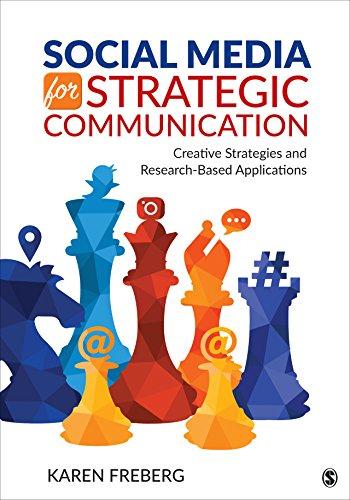MicrobiomeandMetabolome inDiagnosis,Therapy,and otherStrategicApplications
JoelFaintuch
SeniorProfessor,DepartmentofGastroenterology,SaoPauloUniversityMedicalSchool, SaoPaulo,Brazil
SalomaoFaintuch
ClinicalDirectorofVascularandInterventionalRadiology;Co-Director,AdvancedVascularCare Center;AssistantProfessorofRadiology,BethIsraelDeaconessMedicalCenter,HarvardMedical School,Boston,MA,UnitedStates
AcademicPressisanimprintofElsevier 125LondonWall,LondonEC2Y5AS,UnitedKingdom 525BStreet,Suite1650,SanDiego,CA92101,UnitedStates 50HampshireStreet,5thFloor,Cambridge,MA02139,UnitedStates TheBoulevard,LangfordLane,Kidlington,OxfordOX51GB,UnitedKingdom
Copyright © 2019ElsevierInc.Allrightsreserved.
Nopartofthispublicationmaybereproducedortransmittedinanyformorbyanymeans,electronicormechanical,including photocopying,recording,oranyinformationstorageandretrievalsystem,withoutpermissioninwritingfromthepublisher. Detailsonhowtoseekpermission,furtherinformationaboutthePublisher’spermissionspoliciesandourarrangements withorganizationssuchastheCopyrightClearanceCenterandtheCopyrightLicensingAgency,canbefoundatourwebsite: www.elsevier.com/permissions
ThisbookandtheindividualcontributionscontainedinitareprotectedundercopyrightbythePublisher(otherthanasmaybe notedherein).
Notices
Knowledgeandbestpracticeinthis fieldareconstantlychanging.Asnewresearchandexperiencebroadenourunderstanding, changesinresearchmethods,professionalpractices,ormedicaltreatmentmaybecomenecessary.
Practitionersandresearchersmustalwaysrelyontheirownexperienceandknowledgeinevaluatingandusinganyinformation, methods,compounds,orexperimentsdescribedherein.Inusingsuchinformationormethodstheyshouldbemindfuloftheir ownsafetyandthesafetyofothers,includingpartiesforwhomtheyhaveaprofessionalresponsibility.
Tothefullestextentofthelaw,neitherthePublishernortheauthors,contributors,oreditors,assumeanyliabilityforanyinjury and/ordamagetopersonsorpropertyasamatterofproductsliability,negligenceorotherwise,orfromanyuseoroperationof anymethods,products,instructions,orideascontainedinthematerialherein.
LibraryofCongressCataloging-in-PublicationData
AcatalogrecordforthisbookisavailablefromtheLibraryofCongress
BritishLibraryCataloguing-in-PublicationData
AcataloguerecordforthisbookisavailablefromtheBritishLibrary
ISBN:978-0-12-815249-2
ForinformationonallAcademicPresspublicationsvisitourwebsiteat https://www.elsevier.com/books-and-journals
Publisher: JohnFedor
SeniorAcquisitionEditor: StacyMasucci
EditorialProjectManager: CarlosRodriguez
ProductionProjectManager: SreejithViswanathan
Designer: VickyPearson
TypesetbyTNQTechnologies
CharikleiaStefanaki
4. TechniquesforPhenotypingtheGut MicrobiotaMetabolome
ElisaZubeldia-Varela,BeataAnnaRaczkowska, ManuelFerrer,MarinaPerez-Gordoand DavidRojo
6. LaboratorySimulatorsoftheColon Microbiome
M.Carmen.Martı´nez-Cuesta,Carmen.Pela´ezand TeresaRequena
7. PotentialofMetabolomicstoBreath Tests
F.Priego-CapoteandMariaDolores
5. MetabolomicsToolsandInformation RetrievalinMicrobiomeHacking
AbdellahTebaniandSoumeyaBekri
BlockII
BackgroundInformation
8. MetabolomeandMicrobiomeFrom InfancytoElderly
RamonV.Cortez,LuanaN.Moreiraand CarlaR.Taddei
9. TheOralMicrobiome
10. TheGastricMicrobiomeinBenign andMalignantDiseases
ThaisFernandaBartelli,Luiz GonzagaVazCoelhoandEmmanuelDias-Neto
11.
TheHumanVaginalMicrobiome
IaraM.Linhares,EvelynMinis,RenataRobialand StevenS.Witkin
BioactiveMoleculesoftheHuman Microbiome:Skin,RespiratoryTract, Intestine
HeidiPauer,Thaı´sGlatthardt,NicoleV.Ferreira, RosanaB.R.FerreiraandL.CaetanoM.Antunes
NaturalProductsasSourcesofBiological
13. RoleoftheMicrobiomeinIntestinal BarrierFunctionandImmune Defense
AlineIgnacio,FernandaFernandesTerra, IngridKazueMizunoWatanabe, PauloJose ´ BassoandNielsOlsenSaraivaCaˆmara
PossibilityoraRealCauseofSystemic
14. TheCrossTalkBetweenBileAcidsand IntestinalMicrobiota:Focuson MetabolicDiseasesandBariatric Surgery
JarleiFiamoncini Introduction139 BileAcidPhysiologyandMetabolism139 SecondaryBileAcids140 MicrobialBiotransformationofBileAcids141 Deconjugation141 OxidationandEpimerization141 7-a-Dehydroxylation141 Esterification 141 BileAcidEffectsonIntestinalMicrobiota141 BileAcidsasSignalingMolecules 143 FarnesoidXReceptor,Obesity,andGlucose Metabolism 143 BileAcidsHealthEffects,BariatricSurgery, andMicrobiota 143
BlockIII
EstablishedandExperimental Interventions
15. UseofProbioticsinInflammatory BowelDisease
J.Plaza-Diaz,F.J.Ruiz-Ojeda,M.J.Arias-Tellez,P. Solis-Urra,M.J.Saez-LaraandA.Gil InflammatoryBowelDiseases149 RelevantMicrobialPopulations 149 KeyMoleculesandSignalingPathways
150 Metabolome,Transcriptome,andProteome150
16. CurrentStatusofFecalMicrobiota Transplantation
J.ReygnerandN.Kapel
FecalMicrobiotaTransplantation:Regulatory
18. CurrentOptionsforFecal Transplantationin Clostridiumdifficile Infection
NathanielAvivCohenandNitsanMaharshak
C.difficile
17. EffectsofProbioticsonImprovement ofMetabolicFactorsinPregnant Women:AMetaanalysisof RandomizedPlacebo-ControlledTrials
JingSun,DamodarGajurel,NicholasBuysand ChenghongYin
Introduction177 RelevantMicrobialPopulations177 CrucialMoleculesandPathways178 Clostridiumdifficile LifeCycle178 PreventionofColonization178 InterfacesWithAntibioticsand OtherDrugs179 DiagnosticTests180 TherapeuticProtocols180 Treatmentof Clostridiumdifficile Infection180 FecalMicrobialTransplantation180 FecalMicrobialTransplantationProtocol181 FMTforMainstreamUse,andtheFutureof Fecal-BasedTherapies181 Stool-SubstituteTherapies181 UseofSterileFiltratesFromDonorStool181 Bacteriophage-BasedTherapies181 BacterialSpore BasedTherapies182 ProbioticsfortheTreatmentofCDI182 Conclusion182 References183
19. TargetedDeliveryofBacteriophages totheGastrointestinalTractand TheirControlledRelease:Unleashing theTherapeuticPotentialofPhage Therapy
DanishJ.Malik
Introduction185 Mucus-AssociatedPhages185 SafeAlternativesforCurrentAntibiotic Options 186 BioengineeredAvirulentBacteria 186 AvailablePhageFamilies 186 PhageLaboratoryProcessing 186 MechanismofAction 186 GastrointestinalBacterialInfections187 EncapsulationofBacteriophages
20. TheUnknownEffectofAntibioticInducedDysbiosisontheGut Microbiota
AleksandrBirg,NathanielL.RitzandHenryC.Lin
IntegrativeTreatmentforCancers206
BlockIV
DiagnosticandTherapeutical Applications
22. TheMicrobiomeandMetabolome inMetabolicSyndrome
RigobertoPallares-Me ´ ndezandCarlaFerna´ndezReynoso
RelevantMicrobialPopulations215
21. TheMythandTherapeuticPotentials ofPostbiotics
HooiLingFoo,TeckChwenLoh, NurElinaAbdulMutalibandRahaAbdulRahim
TheLPS-CD14ComplexInducesNF-kB218 TheInfluenceofCD4TCellsThrough RORgtExpression 218 TheFarnesoidX-ActivatedReceptorandthe BileAcid“CrossTalk” 219 InterfacesWithAntibiotics 221 TherapeuticalProtocolsandDisease
23. TheGutMicrobiotaasaTherapeutic ApproachforObesity
TrevorO.Kirby,EmilyK.HendrixandJavier Ochoa-Repa´raz
Introduction:TheGutMicrobiomeand Obesity 227
TheMultifactorialAssociationsBetweenthe MicrobiotaandtheHost 227 CanWeIdentifyanObeseMicrobiota?227
ProposedCellularandMolecularMechanisms forthePotentialLinkBetweenMicrobiota andObesity228 StudyingtheGutMetabolomeinObesity229
24. TheGutMicrobiomeAfterBariatric Surgery
CamilaSolar,AlexEscalonaandDanielGarrido
26. TheEmergingRoleof Microbiome Gut BrainAxisin
KarolinaSkonieczna-Zydecka,IgorLoniewski, AnastasiosKoulaouzidisandWojciechMarlicz
25. GutDysbiosisinArterial Hypertension:ACandidateTherapeutic TargetforBloodPressureManagement
Jose ´ LuizdeBritoAlves,EvandroLeitedeSouza, JosianedeCamposCruz,CamilledeMoura Balarini,MarcianeMagnani,HubertVidaland ValdirdeAndradeBraga
27. TheMicrobiomeandMetabolome inNonalcoholicFattyLiverDisease
SilviaM.Ferolla,Cla´udiaA.Couto,Mariade LourdesA.Ferrari,LucianaCostaFaria,Murilo PereiraandTeresaC.A.Ferrari
28. TheMicrobiomeandMetabolome inAlcoholicLiverDisease
KalpeshG.PatelandNikolaosT.Pyrsopoulos Introduction271
29. TheMicrobiome,Metabolome,and ProteomeinPretermNeonatalSepsis
AndrewNelsonandChristopherJ.Stewart
RoleoftheMicrobiomeinEarlyOnsetSepsis281
RoleoftheMicrobiomeinLateOnsetSepsis281
PotentialofSpecificOrganismstoPrevent BacterialTranslocationinPretermInfants282
30. GutMicrobiomeintheElderly HospitalizedPatient:AMarkerof DiseaseandPrognosis?
AndreaTicinesi,ChristianMilani,FulvioLauretani, AntonioNouvenne,ClaudioTana,MarcoVentura andTizianaMeschi
AgingandGutMicrobiota:AClinical
31. TheLungMicrobiome,Metabolome, andBreathVolatolomeintheDiagnosis ofPulmonaryDisease
SamuelM.Gonc¸alves,Cla´udioDuarte-Oliveira, CristinaCunhaandAgostinhoCarvalho
MetabolomeCrosstalk300
32. TheOral,GenitalandGut
MicrobiomeinHIVInfection
P.Pe ´ rez-Matute,M.I ´ n ˜ iguez,M.J.Villanueva-Milla ´ n andJ.A.Oteo
AlterationsofMicrobiotaattheGenital andRectalSitesinHIV-Infection307
AlterationsofMicrobiotainBlood,Semen, andBraininHIVInfection 308
AlterationsofMicrobiotainOralCavity andAirwaysinHIVInfection 308
BacterialTranslocationandAlterationsof GutMicrobiotainHIVInfection 309 HIVInfectionandVirome 313
HIVInfection,MetabolicPathways,and Microbe-AssociatedMetabolites
MetabolicPathwaysandMicrobe-Associated
34. TheGutMicrobiomeandMetabolome inMultipleSclerosis
ShailendraGiriandAshutoshMangalam
33. TheGutMicrobiomeinAutoimmune Diseases
GislaneLellisVileladeOliveira
GutMicrobiomeandAutoimmuneDiseases325
35. ConnectionsBetweenGutMicrobiota andBoneHealth
P.D’AmelioandF.Sassi
36. TheGutMicrobiomeinChronic KidneyDisease
Nata´liaAlvarengaBorgesandDeniseMafra
37. DysbiosisinBenignandMalignant DiseasesoftheExocrinePancreas
RobertMemba,SineadN.Duggan,RosaJorba andKevinC.Conlon Introduction357
39. TheMicrobiomeinGraftVersusHost Disease
MathildePayenandClotildeRousseau
38. ImportanceoftheMicrobiomeandthe MetabolomeinCancer
LilianeMartinsdosSantos,AnaClaraMatoso MontuorideAndradeandMateusEusta´quio MouraLopes
40. ImpactoftheGutMicrobiomeon BehaviorandEmotions
IngridRivera-Iniguez,SoniaRoman, ClaudiaOjeda-GranadosandPanduroArturo
Another random document with no related content on Scribd:
“When Jim told me about the advertisement I did, Miss, and I says to myself, ‘Wasn’t you a crazy not to guess whose it was?’ I says. But, you see, I was on the other side of the field most of the time.”
“Mostof the time,” she repeated, a little sneeringly. “Were you near the wagon at all?”
Her reference was plain. He rubbed at his chin with the back of a shaking hand. “Well, I I held Miss Townsend’s team a bit,” he admitted huskily.
“Oh, you did!” There was a triumphant ring in her voice. “Then I think you have impudence to dare to come to me. If you didn’t take the purse——”
“No!”
“—You picked it up knowing it belonged to me. And you held it until I offered a reward, instead of coming straight here to give it back. What is the difference between that and theft?”
He made no reply, only stood, his back against the door, and stared at her.
“I shall not pay you the reward,” she went on. “I found out something about you when you first came in. I counted the money there at that table”—she pointed to the other end of the room—“and thereweren’tsevenbillsinthepurse. Look!” she held six out to him. His jaw set. He stood upon both feet, bringing heel to heel, his arms at his side.
She flung up one hand. “Don’t deny it!” she cried. “I gave you a chance a moment ago to say that you’d helped yourself to the reward. You kept still. One hundred wasn’t enough. You wanted two —for hanging about and pilfering.” She stopped, panting with excitement. Presently she continued, crumpling the bills in her fingers: “You thought because I’m a woman that I wouldn’t count the money. You thought you could take advantage. I ought to put you under arrest.”
To that he said nothing.
“But I won’t I don’t want the notoriety. I’ve got the purse back and all the money I expected. But who are you? You sha’n’t leave this room till you tell me that.”
“As long as you think the way you do, it don’t matter who I am.”
“Ah! So you daren’t tell your name! But I know your face—now that I’ve looked at you well. And I’d know you again anywhere. You’re employed about here. You’re a groom.”
“Yes, I’m a groom,” he answered; “I’m Mr. Philip Rawson’s man.”
Now there was a long silence. He rested his weight on one foot again, and folded his arms, with his hat under one of them. He was pale, and met her look with resentful calm. She stood, swaying a little and swallowing.
“So you work for Mr. Rawson?” she said finally, her voice uneven.
“He’s a friend, and I don’t intend that any friend of mine shall keep a man like you in his employ. I shall see him about you. That is all. You may go.”
The young master of Hillcrest was out of his machine and pacing the walk impatiently when Larry came into sight, and he advanced a few steps to meet the man, scarcely able to restrain his eagerness.
“Well, Larry,” he began, “was the Princess made happy?”
Larry did not reply at once. But as he paused in the light of the automobile lamps his face looked a deathly white, and his red hair seemed to be standing out straight and stiff, like bristles.
“Larry!”
“She ain’t no princess!” said the man. “And I don’t think her beautiful no more. If you could a-seen her, sir,—why, she crumpled up, her face did, like the money in her fingers. She was afraid I’d want that hunderd, you see. So I hadn’t been in the room two minutes before she’d slipped a bill and then called me a thief.”
“For Heaven’s sake, man!”
“A thief!—as if I’d chance bein’ let out by you, sir, for the sake of a hunderd dollars! I knowed that minute how I’d been mistaken in her —terrible. She ain’t no thoroughbred, sir. There’s Miss Townsend— fifteen hands and ev’ry inch a lady would shea-done me like that? This is bold talk, and you’ll feel like kickin’ me from here to Brampton. But I’m thinkin’ too much of you to pick words—I’m thinkin’ so much of you I’d hate to see you marry her. And, now, I’ve got you down on me, sir. She’ll tell you I lied for spite because I didn’t get the money. It ain’t spite—nothin’ like it, sir. But you won’t believe me against her—I know that. And it means I’ll have to leave Hillcrest. Well, I’ll go, sir,—I’ll go. I couldn’t work for her, anyhow, you see, sir. So—good—good-bye, sir.”
It was a week later before Sue heard the story of Larry and the seven one-hundred-dollar bills. Then Phil told it to her—one afternoon when he came to join her in a horseback ride. After he had told it (they were in the library at Arbor Lodge), he leaned back in his chair, his crop across his knees, and studied her face.
Sue looked troubled. “Oh, I think there must be some dreadful mistake about the whole thing,” she said. “I don’t mean that Larry isn’t honest—I think he is. He’s got a nice face, and I simply couldn’t lose faith in a red-headed person.”
Phil smiled. “And you simply couldn’t say anything against anybody,” said he; “I know that. But this involves theft, Sue.”
Sue looked more troubled than ever. “We’ll all steal if we’re sufficiently tempted,” she declared. “Isn’t that so? You or I wouldn’t steal money. That’s because we don’t need it.”
“Larry was entitled to the reward; but he didn’t have the slightest idea of accepting one cent. What he did expect was—Gad! what a backhander!”
“But, Phil,” she said, “you mustn’t let the word of a groom make any difference between you and Genevieve.”
“I won’t.”
“Genevieve wouldn’t be so tricky, Phil.”
Phil said nothing.
“She must have thought Larry guilty if she was so severe with him,” persisted Sue. “She’s so just. And generosity itself.”
Phil looked at his boots.
“My servants adore her.”
Phil examined the end of his crop.
“Give her a chance to explain, Phil, at the Carltons’ to-night.”
“I’m not going. Are you?”
“No. I’ve planned an early canter for to-morrow.”
He leaned forward. “Am I included?” he asked.
She regarded him critically, and reflected that he looked pale. “Would you like to go—this afternoon and to-morrow, too?”
“I’d like to go,” he declared. “There’s Wheaton Hill, too; we haven’t been there yet. And those collies of Bob’s—if we don’t watch out they’ll be grown dogs before we see ’em.”
She hesitated a little. Then, “I wouldn’t care to have Genevieve think,” she began, “that I’d stayed away from the Carltons’, and that you stayed away, too, and that we——”
“May I come?” he persisted, and rose.
Again she looked at him critically. His manner was not cheerless—yet what pain might not be hidden by bravado? “Yes, come,” she said.
Looking down at her, he saw that her eyes were full of pity and sympathy and tender appeal—yes, and tears. He came to stand in front of her. “Do you know,” he said, “I think Genevieve is an
epidemic. We’ve all had it, by Jove, just as if it were contagious. But, luckily, it’s not incurable.”
“Let’s not criticise her, Phil.”
He smiled and shook his head. “You’ve got the disease worse than anybody,” he declared. He swept one arm about the room, pointing —to the picture of Genevieve on the mantle; to the two pictures of Genevieve on the writing-desk; to the panel between the two bookcases, where Genevieve was feeding the fawn. “One, two, three, four,” he counted. Then he looked at the round gold locket hanging between the lapels of her coat. “And I’ll bet a pony that there’s a picture of Genevieve in that locket,” he added. She blushed, hastily hid the locket in the palm of a hand, and stood up. “The brown pony?” she said.
“Books, gloves, cigars, ties,” enumerated Phil, “I don’t care what you bet. Come!”
“I like that brown pony. But I shan’t bet.”
“Why not?”
“Because I’m betting about something that I know about, and you’re betting about something that you don’t know about. It would be taking advantage of you.”
“Is it that, or is it that you don’t want to admit that you’ve got the Genevieve epidemic?”
Two spots of scarlet brightened her cheeks. “I’ll wager a box of gloves with you against the pony that Genevieve’s picture isn’tin this locket; but on one condition: Grandmamma must look at the locket and tell you Yes or No.”
He shook his head. “I won’t agree to that. I’ve got to look at it myself.”
Sue also shook her head. “The bet is off,” she said. “Sorry.”
“Oh, come on!” he entreated. “I’ll never throw it up to you—honest.”
Sue moved away to the hearth. “No,” she said decidedly.
He followed her, laughing, and pried open her fingers. She seized the chain and pulled back. He held on to the locket and stood his ground. The next moment the chain broke and slipped through Sue’s fingers, and the locket was in his hand.
Sue sprang forward and tried to regain it. “Oh, Phil, don’t look!” she pleaded. “Please, Phil, please. You——”
But he had fled to the other end of the room, pressed the locketspring, looked, caught his breath, stared at her in amazement, backed a step——
She covered her face with her trembling fingers. “Oh, Phil!” she whispered tearfully; “Oh, Phil!”
He ran to her then and caught her to him. “Sue!” he cried tenderly. “My girl! How could you keep it there—when I’ve been such a fool! But this whole thing has taught me what your dear comradeship means to me, and just how much I love you.” And he drew her trembling hands away while he kissed her.
She clung to him, crying, and hid her face; then smiled up at him through swimming eyes, and drew his face down to hers.
“Where did you get it, Sue?” he asked.
“You remember the party your mother gave for your sixteenth birthday?” she whispered. “Well, that night this was in her dressingroom. And—and—you know I said either one of us would do if we were tempted just right—Phil, I I stole it!”
Opening his eyes in mock displeasure, Phil held her at arm’s length for a moment. Then very solemnly, he led her to a window. “You stole it?” he said; “you—fifteen hands and every inch a lady? Well, let me warn you never, never to let that man know!” And he pointed down to the edge of the terrace where, waiting, with one hand at the bit of a grey pony, and the other at the bit of a brown, stood a red-haired, red-cheeked groom.
AGATHA’S ESCORT
A FLUFF of brown hair through which ran unexpected glints of yellow; unforgettable violet-blue eyes, curtained by black lashes that were long and upcurling; a straight nose of a much-approved size, with delicately thin nostrils; a small, very red, and somewhat pouty mouth; a determined chin; rounded cheeks just brushed by scarlet and punctuated by a pair of busy and bewitching dimples; a slender throat; a svelte, girlish figure in a smart, linen trotteur; the very newest and tiniest—thing in sensibly stout tan walking-boots; and, lastly, to top the rest, an irresistible millinery confection in tones of buff and crocus, with feathers to dance against the fluff of hair below all this was Agatha Kerr, beautiful, adorable, spoiled Agatha Kerr.
At the moment, she was seated in a high-backed chair in the inner law-office of Avery & Avery. Her face was flushed with annoyance, and she was poking viciously at her boots with the point of her parasol. “A woman of twenty-two,” she burst forth presently, with a resentful toss of her head, “a college graduate, should certainly be able to go out of the house by herself.”
Close beside her sat her aunt, a lady whose chin was quite as unyielding as her own. At this point, Auntie rolled her eyes at Mr. Avery and sniffed audibly.
“And conduct her chosen life’s work,” resumed Agatha, striking a higher key, “without being constantly harassed!”
“You are to be protected,” contradicted her aunt, crisply serene. “Mr. Avery, this child is studying—er, what do you call it, Agatha?”
“Sociology,” again attacking her boots.
Mr. Avery looked incredulous. A young woman whose thoughts turned to philosophy should be a homely and angular female with
large feet, a thinned coiffure, no waist-line, and a general appearance of having dressed overhastily. But here——
“It is a study that takes her into places,” continued the elder woman, “where a young lady should not be seen alone.”
“Methods of study have changed,” said Mr. Avery. “I discover that in discussions with my nephew.”
“Geoffrey?” questioned Auntie. “Isn’t he up at Columbia?”
“No, he has graduated and is here with me, reading law.”
“Auntie,” began Agatha pityingly, “doesn’t realise that a young woman meets with far more courteous treatment on the East side than she does elsewhere in town.”
“I regret to admit,” said Auntie with polite heat, “that to me her sociology, so far, has seemed nothing but—but——”
“Say it! Say it!” cried Agatha.
“Well, then, madcap gadding.”
Agatha rippled out a laugh. “Auntie doesn’t understand. I am working on a thesis for my master’s degree—‘The Influence of Alien Immigration upon the Metropolitan Body Politic.’”
Mr. Avery nodded. “My dear Miss Connaughton” (Auntie was Miss Connaughton), “what have Ito do with Miss Agatha’s thesis?”
“A suitable person,” answered Miss Connaughton, “a gentleman, of course—for no woman, however quick on her feet, could ever keep up with Agatha—must be found who will act as her escort.”
“Ah!” said Mr. Avery, smiling. “A gentleman in waiting for the princess!”
Agatha’s lip curled. “Oh, no,” returned she ironically; “an attendant for the lunatic.”
This Miss Connaughton ignored. “I came to you, Mr. Avery,” she said, “hoping you could recommend someone.”
Mr. Avery pursed his lips thoughtfully.
“I want an educated mind for this particular duty,” added Miss Connaughton, with meaning.
Agatha rippled another laugh. “Auntie wants a nice, little tattletale to listen and report—a sort of afternoon-tea Pinkerton.”
“I still insist,” declared Miss Connaughton.
Agatha’s wrath blazed up anew. “Very well,” she said decisively. “If I must have someone tagging at my heels night and day, night and day” (jab, jab), “the only escort I shall accept will be deaf and dumb.”
Miss Connaughton threw up her hands. So did Mr. Avery: he clapped one over his mouth.
“Deafanddumb!” gasped Miss Connaughton weakly.
“Yes,” said Agatha triumphantly. “On that condition, I’ll agree.”
Mr. Avery, now unable wholly to contain himself, indulged in a broad grin. “The idea isn’t half bad,” he said.
“Thank you,” from Agatha.
Miss Connaughton returned to the contest. “But the newspapers would surely get it!” she wailed, suddenly aware of the dramatics of the situation.
Agatha put out one small, gloved hand toward her kinswoman. “My aunt,” said she, “lives in daily horror of having the proud name of Connaughton dragged into the vulgar press. Well, I can just see the headlines: ‘Miss Connaughton’s Ward Has Softening of the Brain!’
Oh, it will be the limit!”
“Agatha!” groaned Miss Connaughton.
Mr. Avery interrupted hastily. “The suggestion as to a deaf-and-dumb attendant,” he began, coughing professionally, “is I think, an excellent one. Such a person would fulfil your requirements, madam.” This to Miss Connaughton, who had sunk back, chin on
breast, in what was almost a state of collapse. Then, to Agatha, “May I ask if there are other specifications?”
“Well, yes,” drawled she teasingly, a roguish twinkle in those violetblue eyes, “he must be good-looking” (Miss Connaughton’s brow clouded) “and smart in appearance. Why,” with an experienced air, “there isn’t any part of New York so quick to note the difference between real and sham people as the East Side, and the children have a most embarrassing way of throwing valuless etceteras.”
Mr. Avery picked up a pencil. “Deaf and dumb, good-looking, young, smartly dressed,” he enumerated. “Anything else?”
“Let—me—see,” pondered Agatha. After a moment, “I think I shan’t bother to stipulate the colour of his eyes and hair.”
“Huh!” observed Auntie.
“I shall have no difficulty in finding a person very soon who will fit these requirements,” said Mr. Avery briskly.
Agatha rose, gave him a dainty curtsy, and approached the door. It was just at this point that she got a bad start. Miss Connaughton was beside Mr. Avery’s desk imparting something in confidence. Agatha, twirling her parasol and proudly ignoring her aunt’s whispering, dropped into a chair and was making a leisurely survey of the room, when——
She had not particularly noticed, before this, the long, high reference table that occupied one whole side of the office and was piled with books. Under it now, against the claw-feet of a revolving chair, she spied something—a pair of neat, brown half-shoes! Above these were a few squares inches of hosiery—plaid hosiery. There was a man behind that table!
It was the plaid that caught Agatha’s eye: it was so absolutely out of the ordinary, and, in fact, noisy—broad blue and green stripes at right angles across a drab ground. It betokened importation. “And from France,” concluded Agatha shrewdly; for on the drab ground, between the stripes, were cunningly worked French knots.
There was another member of the firm of Avery & Avery—Mr. Avery, Jr. Perhaps this was he—eavesdropping. But, no; he was a gentleman with a grown son. The plaid-hosiery person was a young clerk with loud taste, and he was really not worth a second thought. “Come, Auntie, please,” said Agatha, with all the dignity she could command. Then she swept out.
It was quite wonderful how promptly Mr. Avery, Sr., disposed of the matter of the escort. The very next day Agatha was informed that the attorney wished to speak with her over the telephone, and no sooner had she popped the receiver to her pink ear than a man’s voice hailed her with a brisk “Good-morning” that bespoke success. And how nice and deep his voice was over the wire! Why, not at all like his usual, every-day voice!
“Good-morning,” returned Agatha. “I hope you’ve found someone. I wanted to attend a meeting of the Cigarette Makers to-day. But” (a little sulkily) “the moment I mentioned it Auntie developed a case of ocular neuralgia.”
There came back a hearty laugh, then, “Oh, say, Miss Agatha, I can settle that neuralgia.”
“You mean you’ve found him?” asked Agatha; “so soon?”
“He’s a fellow that I know very intimately—better than anybody else. Known him for twenty-five years.”
“Oh, how old ishe?”
“Just twenty-five. I’ve known him since he was a baby.”
“Is he deaf and dumb?”
“He won’t listen, and he won’t gossip,” declared Mr. Avery.
“Graduate of an institution?”
“Yes.”
“But,” objected Agatha, “uniforms are so conspicuous.”
“He doesn’t wear one,” answered Mr. Avery.
“Does he talk on his fingers?” asked Agatha.
“Yes; but if he bothers you (because he’s an absent-minded fellow anyhow), why, you just tell him to muffle his hands in his pockets.”
Agatha sent one of her gay ripples over the wire. “But I can’t read finger-talk,” she protested.
“I’ve presented him with a pad and pencil. If he wants to scribble too much just give him the pocket-sign. Oh, don’t say you won’t take him,” pleaded Mr. Avery.
Agatha covered the transmitter with one hand for a moment. How— er—feelingly he said everything this morning! He didn’t at all sound like himself.
“When he comes,” continued Mr. Avery, “don’t forget to smile at him. The kinder you are the happier it’ll make him.”
“I won’t. The poor fellow!”
“Ah, Miss Agatha, he isa ‘poor fellow.’ So keep him with you just as much as you can. Have him show up before breakfast, and work him all day. He’s an accommodating duck. He wants to come right up.”
“Very well,” said Agatha. “Good-bye.”
Half an hour later Miss Connaughton and her niece met the escort in the library. For the elder lady it was a moment rich with satisfaction. By now she had forgotten any concessions in Agatha’s favour, and felt that she had brought that wilful young person to terms. As for the tall, good-looking, well-dressed young man who awaited their entrance, he was plainly discomfited. For he was red.
“It is gratifying,” said Miss Connaughton, addressing him, “to know that my niece is to have your companionship and protection on her scholastic pilgrimages.”
Agatha bowed prettily. Then she remembered Mr. Avery’s advice. She smiled up at the young man. He took her hand and bent over it, looking down at her intently—perhaps rather too intently and retaining her fingers a second too long.
“Auntie,” reminded Agatha, “he didn’t hear a single word you said.”
The next moment the escort drew forth a long, pink-covered pad to which was hung a lead-pencil patriotically wound with the Stars and Stripes. Upon the first clean, white page of the pad he wrote these words, “I understood something of your cordial greeting, madam, because I read the lips.”
Agatha stared at the sentence over Miss Connaughton’s shoulder. Then a swift flush of annoyance dyed that particular rounding of her cheeks where her dimples were. He could read the lips! She felt herself tricked. And it was on the tip of her tongue to say, “Auntie, is this your work?” or something equally severe, when she had an inspiration. Up came the dainty square of her handkerchief, to swing as a guard by a thumb and a forefinger.
“His reading the lips,” she said with airy indifference, “doesn’t matter in the least. I have only to do this.” Which announcement was calculated to take the starch out of any fell designs of Auntie’s—if she had them.
“But, Agatha,” cried Miss Connaughton, seized by a terrifying thought, “if the man is deaf, how is he going to protect you from the surface cars?”
A succession of spasms crossed the face of the escort; his lips moved spasmodically. Then he began to write. When he had finished, he offered Miss Connaughton the pad. Upon it was: “Madam, I guessed rather than read your concern. Let me assure you that when cars approach me I feel the jar.”
Auntie sank back, somewhat eased in her mind, but Agatha read the words with staring eyes. Then up came the handkerchief again.
“Why,” she exclaimed, “he’s a regular professor of lip-reading!”
“Perhaps it’s just as well that he can read the lips,” said Miss Connaughton. “An exigency might arise, dear.” She leaned forward and touched the young man’s arm. “What—is—your—name?” she asked, articulating with exaggerated precision.
“If he understands, he’s as bad as a man that can hear,” put in Agatha, from behind her handkerchief. “And I won’t have him.”
But the escort was looking from aunt to niece in a puzzled fashion. Finally he shook his head.
“Your—name,” repeated Miss Connaughton.
Now sudden comprehension illumined his whole face. With an eager nod he seized the pencil and wrote, “In Yonkers.”
“You see?” said Miss Connaughton. “He doesn’t always understand.” She graciously wrote the question.
Again his face lit up, and he looked a smiling apology. Then he hastily scribbled, “John McVicar.”
“Agatha,” said Miss Connaughton, “he’s a little too—er—actorylooking, according to my idea. But, being deaf and dumb, he will never presume——”
“Put up your handkerchief,” warned Agatha, colouring.
Just then the young man produced his own handkerchief, and began to cough violently into it. (It was a smart affair with a blue-dotted border.)
“Don’t cut me off in the middle that way,” said Miss Connaughton petulantly. “There is danger, Agatha, in bringing a strange young man into such close association with you. Have I ever seen any young man spend two hours in your company without——”
“Boo!” said Agatha, her dimples playing again.
“But,” said Miss Connaughton, “I shall engage him.” So thoroughly satisfied was she with the whole outcome of the matter that she even omitted to call up Mr. Avery to thank him.
A few minutes afterward Agatha and the escort were proceeding down Fifth Avenue. It was a walk Agatha always took when opportunity afforded. She liked the shops; she liked the moving lines of vehicles; she liked the swarming humans.
Just before the two reached Twenty-third Street, the escort drew to one side for a moment, and wrote something on the pad. It was: “As I do not hear, I must put you to the annoyance of taking my arm when we cross the streets.”
“But,” Agatha scribbled back, “I thought you could hear rumbles.” “Not wagon rumbles.”
Agatha took his arm—and kept it. She found the going noticeably pleasanter. He walked with his chin in, his shoulders back, his look straight ahead. Every now and then she glanced up at him, sidewise, from under the dancing plumes of the crocus confection. After which she always shook her head sadly. “What a pity he is d— and d—,” she said to herself. She could not bear, somehow, to say the whole words.
They were threading their way slowly along Avenue A when the escort was saluted by a friend—quite a presentable young man, who gave Mr. McVicar a resounding slap upon the shoulder. (Agatha had been separated from her escort by struggling pedestrians.) “Hello, Cub!” sang out the presentable young man.
Mr. McVicar turned with a start, glared for a second, went white and red by incredibly swift turns, and then—strode on.
“I say, Cub!” persisted the other. “Cub!Where you steering?”
The escort now halted abruptly, excused himself to Agatha by a bow, led the young man away a few steps, produced the pad and pencil, and inscribed a line. Whatever the statement was, the young man met it with relish and composure. He had, by now, caught sight of Agatha. So he removed his hat and swept the air with it. Then, grinning, he pulled off a glove and made a few, swift finger-signs.
He must have signalled something rude, for as Mr. McVicar wheeled abruptly and joined Agatha, his expression was furious. And presently, having torn away a leaf of the pad, he wrote: “Morrison is a rank idiot. Known me a long time, but always forgets my infirmity.”
Infirmity! Agatha, as she tripped along, saw buildings and people suddenly reel and blur—through a mist of tears. His society had been thrust upon her: she had rebelled at it. Yet hers was a tender little heart, and that tender little heart ached to think how frankly he referred to what would have been worse than death to most men. Ah! that was the kind of bravery she liked! (They had come to a crossing where the pavement was torn up. She took his arm again.)
She resolved not to make his first day a difficult one, so she hailed a cross-town car that would carry them near to Macdougal Alley. She had promised to see a certain painting in one of the studios there. When they had seen it Agatha was thirsty. They sought a drug-store and had, each, a glass of sticky lemon-soda. Next, Agatha was tired. They made toward the nearest square and sat down.
It was one of those late summer days that suggest the nearing autumn: the sun was not too warm, the breeze was not too cool, and there was a delicious leafy smell in the air. Agatha leaned back, and dilated her nostrils to drink it all in.
Mr. McVicar, however, drove his pencil busily. “That picture you selected,” he wrote “—you thought the subject good?”
Agatha looked at him in grave astonishment. “I thought the picture dreadful,” she answered, “but the artist needs money. It’s the third I’ve bought.”
He gave a hearty laugh. (She was relieved to find it clear and pleasantly modulated.) “I thought you were a sociological student. Do you favour indiscriminate charity, Miss Agatha?”
“I am opposed to it, theoretically, but we cannot judge the failures and condemn them and deny them help unless we first know what has been their milieu.”
“What a generous, womanly thought!” he commented. Presently he added, apropos of nothing, “You would be all forgiveness.” His expression became more grave than her own.
Agatha might have thought him too personal, even impertinent, but there was that level gaze, all honest admiration. Auntie herself could not have taken umbrage. Nobody could have. His eyes were grey—a very dark, expressive grey. She met them steadily for a moment. Then her own fell, and those long, up-curling, black lashes swept a cheek which had grown suddenly rosy.
He was writing again. “I can understand almost every word you say when your face is near.”
“Really?” she asked him.
He had leaned toward her. “Really,” he answered on the pad.
So Agatha moved close. “I am—so—glad,” she said, articulating carefully. Her eyes grew moist with earnestness. He lived in a world of silence. Oh! the tragedy of it!
He looked his gratitude. It was strange how perfectly he seemed to know what she had said; for he had not watched her lips: he had watched her dimples.
It was so slow and difficult putting things down that soon he devised ways of conversing more readily. He formed swift letters in the air with one forefinger, or scratched them in the dirt with her parasol.
Five o’clock found them still in the square. Agatha was surprised when she discovered how late it was. She signalled a passing taxicab, and they were whirled home together.
“Aren’t we going somewhere to-night?” he asked as they neared the end of their ride.
She looked rueful. “I’m—afraid—I—can’t,” she said. Her face was lifted. His head was lowered attentively, so that his hat-brim touch the fluff of her hair. “I’ve—promised—to—see—a—play with— Auntie. But—after—this—I—shan’t—make—engagements—that—will —conflict—with—my work.”
When they entered the library Miss Connaughton had fresh tea brought. “I trust,” said she, “that nothing unpleasant happened to-
day.”
Agatha pondered, the tip of her teaspoon against the tip of her chin. “No,” she said. “Only, we met a friend of Mr. McVicar’s. But he was notd— and d—.”
“D— and d—!” Miss Connaughton was horrified. “Hush, Agatha! It sounds profane.”
But Agatha was smiling into her cup. There was a “to-morrow’s visitor” floating in it—a tall visitor. She lifted it to the back of one hand and struck it smartly with the back of the other. It transferred itself. She gave Mr. McVicar a swift glance.
He was holding his cup aloft. Across its rim his grey eyes were watching her.
She held up the “visitor” triumphantly. He nodded.
The following day the “tall visitor” came again, and he and Agatha took their second walk down the avenue. Agatha had on a blue linen. It enhanced her colour charmingly. Mr. McVicar carried her parasol, a new one with a brass tip. She was in the best of humour, and stood on her toes now and then while she said something. He was in the best of humour, too. But of a sudden his face became very sober, even anxious. He began to take longer steps.
Agatha remarked his nervousness. She looked round. There were three young men close at hand who seemed to be observing Mr. McVicar. They were well-groomed young men. “Collegy,” was Agatha’s verdict.
Just then a young man approached them, going the other way. He took off his hat politely with one hand; with the fingers of the other he signed the escort an elaborate good-day.
Mr. McVicar gave him a cold stare.
Scarcely half a block farther on, a second young man lifted his hat with a bow and—wiggled hisfingers!
Mr. McVicar glared.
When a third young man passed them, with a well-bred smile, a bared head, and a mute greeting, Mr. McVicar’s face became almost distorted. Agatha heard him gurgle.
Not a minute later, a fourth young man advanced toward them, one hand rising to his hat as he came on. Mr. McVicar, guiding Agatha, abruptly stepped aside into a shop and made a quick purchase. When they had gained the street again by a side exit, he wrote: “I have a headache. Do you mind if I wear these?” “These” were coloured glasses.
“Not—in—the—least,” she declared.
The morning was given over to tenement-house inspection, and Agatha was a fairy-figure amid the sordid gloom of it all. Mr. McVicar kept beside her (the inspector led), helping her up long, dark stairways, and down into pit-like cellars, and through dank halls full of poor, little gaping children. When noon came they sought a nearby café.
It was while they were here that an extraordinary thing happened. They had gotten comfortably placed, both on the same side of a table—so that he could understand what she was saying (his glasses were off now)—when there entered, in single file, one, two, three, four, five, six, seven well-dressed young men. They seated themselves opposite Agatha and the escort. And, presently, after each had given the menu a casual glance, all began to talk at once— on their fingers!
Agatha opened her eyes. “Everyone of them d— and d—!” she said to herself. “Is this a d— and d— café?” Her eyes roved from waiter to waiter.
But the seven young men were evidently from Mr. McVicar’s institution, for they caught sight of him a moment later, bowed to him in great surprise, and began to make him finger-signs.
He bowed in return, but he regarded them darkly and made no return signs.
Agatha reflected that there were more d— and d— people in the world than she had ever imagined. Presently she noticed that Mr. McVicar was not eating. “Don’t you like the goulash?” she wrote.
“I have a headache,” he answered.
“You must go home, then.”
“But the Amalgamated Shirt-Makers?”
At this juncture the seven young men opposite got up and filed slowly out, each working a right hand in what seemed to be a friendly adieu.
When Mr. McVicar rose his lips were pressed together as if he were striving to master himself. He refrained from looking at Agatha and fiddled with his hat.
She saw how ill he was. Her expression grew troubled and wistful. “A hansom,” she said to the head waiter. But she did not send Mr. McVicar home. She let him drive to her aunt’s with her.
On the way, for some reason or other, Mr. McVicar grew much brighter. “Where do we go to-morrow?” he asked.
Agatha stole a glance toward him. “To-morrow,” she said, “I—shall— devote—to—automorphic—deductions—and—to—the—correlation— of all—the—new—concrete—examples—I—have—noted.”
“Then you’ll need me,” he declared. “Will—you—be—well—enough?” asked Agatha.
“Why, I’m well now.”
“Come—then—in—case—I’ve—forgotten—any—of—the—examples.”
The following morning they did not go down the avenue, but turned into Central Park at the Sherman statue instead, and out of it again at the West Seventy-second Street entrance. Then they headed toward the Hudson.
It was a day even more perfect than the last. The wide topaz river sparkled in the sun. The shaded walks wound invitingly between leaf-strewn stretches of green. There were children at play along the smooth crescents of the drive, and sparrows darted to and fro, chirping.
Thus far Agatha had walked, head down and brows puckered— evidently concerned with “automorphic deductions.” (They had gone, in all, some twenty blocks, which was a sufficient distance for any number of deductions.) But now she roused from her thoughts and looked up at Mr. McVicar. His chin was on his breast, his eyes were lowered, and his manner was undisguisedly dejected.
She touched his arm. Then she stopped and stood on tiptoe. “Aren’t —you—well—to-day—either?” she inquired, her red mouth very close, so that he would be sure to understand. He looked down at her for a long moment. Then he wrote, “I never felt better or happier in all my life.” When he took the pad again his hand covered hers for a second. Of a sudden her manner became distinctly reserved.
Presently they reached a shaded bench. He dusted a seat for her, and they sat down, when he wrote: “But I know my happiness can’t last. I meant to tell you last night. You see, I have an uncle—a lawyer who thinks I’m wasting my time. I must quit.”
Agatha coloured painfully. Mr. Avery had driven a close bargain with him! She hastened to write in return, “You shall get what your uncle thinks is fair.”
“There’s another reason, little woman. You saw my friends yesterday. They’re inquisitive. I’m afraid they’ll annoy you. So this is my last day.” He gazed across at the New Jersey shore. She moved nearer, touching his arm ever so lightly. “Is—that—the— real—reason?” she asked.
He watched her red mouth frame each word, and his face lowered, as if irresistibly drawn toward hers. Then his head sank to a hand.
He studied the path. Soon, “No,” he wrote, “it isn’t. The real reason involves a great happiness that I daren’t hope for.”
Agatha leaned even closer. “There—is—a—possibility—of—your— speech—returning?” she guessed. She held her breath at the very thought of it.
He nodded. “Yes, it’s very likely that my speech will come back.”
Agatha turned away, and glad tears swam beneath the black lashes. He would speak again! He would be like other people! Oh, how good! Presently, she blinked the tears away. “You—haven’t always— been—this—way?” she said.
“Not always.”
“When—did—it—happen?”
“Quite recently.”
Her face was sweet with pity. “Were—you—struck—dumb?” she asked.
He observed her steadily for a moment. “I was terribly hard hit,” he wrote.
“It—affected—your—hearing—too?”
“It even affected my heart.”
“Will—these—both—improve?”
“It depends on just one person.”
She gave him a smile full of cheer. “Doctors—do—wonderful—things —these—days. Is—this—one—homeopathic?”
“No, magnetic awfully.” His grey eyes searched hers again. “Would you advise me to hope?”
“Oh—yes! Just—hope—has—wrought marvels.” Her face shone with earnestness.
“Bless you. But you don’t know that this is all the result of my own wickedness.”
“You—have—been—more—than—punished—then.”
He clenched his two hands. “Yes, I have been punished,” he wrote. “If you ever have to pass judgment upon me, remember that.”
“Was—it—so—dreadful—what you—did?”
He thought a moment. “Not when you consider the temptation.” “What—was—the—temptation?”
He hesitated so long that she believed he had not understood her. So she wrote the question, “What was the temptation?”
“A girl.”
Agatha shrank back in sudden, inexplicable indignation. Then she rose abruptly. She had meant to tell him that if he were to regain both speech and hearing it would make no difference in their arrangements. But now——
He rose, also, and dropped the pad into a pocket. Then he handed her the parasol. His attitude was one of resignation.
Walking homeward, Agatha looked straight ahead, and two bright, red spots burned in a circle about her dimples. At the bottom of the Connaughton flight, she gave him a dignified good-morning. He held out a card to her. Then he raised his hat.
All that afternoon Agatha wandered about the library. She felt a surprising indifference toward her thesis. Every little while she drew forth Mr. McVicar’s card. It contained, in addition to his name, a line written in pencil, “Telephone, River 0630.” Why had he written that?
Shehad no further need of him!
But as tea-time neared she remembered a place that she felt absolutely called upon to visit in connection with her work: a narrow down-town street, with its hosts of children all a-dance on the gaslighted pavement. Could she visit the crowded block alone? And was Mr. McVicar’s time up for that day before, say, ten or eleven o’clock? Certainly not. And if she paid for his time was she not entitled to his company She asked central for River o-six-three-o.
A maid’s voice answered the telephone. “Tell Mr. McVicar,” said Agatha, “that Miss Kerr will want him this evening at eight.”
“Very well, miss.”
Agatha, smiling and rosy faced, made her way tunefully up the staircase.
“What! Going out at night?” demanded Miss Connaughton, from the drawing-room.
“Of course,” said Agatha; “what have I an escort for? Oh, tra-la-la, tra-la-la,” and, singing, she disappeared.
Agatha had promised to telephone Miss Connaughton, so she rang up directly they stepped from the cars at the down-town station. “I can’t possibly get home till eleven, Auntie dear,” she announced. “It took us forty minutes to come just this far.”
“Oh, Agatha!” came back the reply. “Come home—awful news—Mr. Avery——”
“I can’t hear you,” cried Agatha. “The elevated is making such a noise. Rattle your ’phone.”
“Insolent trick,” went on Miss Connaughton. The remainder was a jumble.
Agatha told Mr. McVicar about it. “I—can’t—go—home,” she said. “This—evening—is—dreadfully—important. Don’t—you—think—so?”
“YES,” he wrote—all in capitals. Offering her his arm, he hurried her away.
It was not an ideal evening for Jones Street. There were clouds overhead in massive motion before a hot wind. The gas-jets leaped and hissed down the narrow streets, which looked particularly dark and forbidding. Perhaps the children would not dance on the pavement that night. Agatha did not care.
Mr. McVicar obviously did not feel as cheerful as she. It was as if all the heart had gone out of him. And he kept looking back. It made Agatha nervous. She took to glancing behind also. What was he expecting?
They approached the lone figure of a man—a forlorn figure that slouched into the entrance of a building just ahead. Mr. McVicar crossed the street. They passed other figures. He looked each over keenly. She shivered a little. Oh, she was glad he was so big!
They hurried forward. Each thoroughfare seemed to grow narrower and gloomier than the last. They turned innumerable corners, Agatha clinging to his arm with increasing timidity. All at once, on turning another corner into a street that looked very much like one they had already traversed, they came face to face with two swarthy-skinned persons, a man and a woman. The pair were evidently gipsies, for the woman wore a red handkerchief upon her head, while big, gold earrings swung against the neck of the man. The latter carried a monkey. He did not get out of the way. Instead, leering, he held out a hand.
“Give me da mon for da monk!” he cried.
“Hurry!” Agatha entreated. Oh, for Auntie’s brougham now!
Instead of hastening, Mr. McVicar faced the man and gave him a resounding cuff upon the ear. Agatha, the sociologist, became that moment just a normal, terror-stricken girl. She screamed. With her cry mingled the raucous protests of the man and the hoarse commands of the woman, for Mr. McVicar now had the former by the shoulders and was shaking him fiercely.
The hubbub brought aid. Around the nearest corner came a welldressed young man, piloting a policeman on the run. A moment, and around another corner came another well-dressed young man with another policeman.
Next, “Cut for it!” Agatha heard a voice exclaim—a deep voice. But, strangely enough, the gipsies did not attempt to get away. They stood and grinned at the little crowd that had gathered.
Mr. McVicar sprang to Agatha’s side. He was panting and—could it be true?—gurgling what sounded like words!
Agatha smiled at him through the dim light. He had protected her. Her hand crept into his. Then she gave a fresh cry of fear. His fingers were wet with blood.
“Oh, he’s wounded!” she called.
“Did he bite you?” demanded one of the policemen—the one who had the man-gipsy by the coat. “Well, here—bite him back! The dog!”
“I did notbite him,” protested the man-gipsy. “It was the monkey.”
“Where is that monkey?” shouted the woman-gipsy. “Say, you fellows, hunt him up. If we lose him we’re out twenty plunks.”
Three or four of the onlookers scattered in different directions, searching.
“Shut up, you she-devil!” ordered the second officer.
“How can we thank you?” said Agatha.
“No thanks, miss,” said officer number one. “Just come along, please, for to testify.”
At that Mr. McVicar took one of the little fingers that were resting between his and deliberately pinched it! Agatha understood. To go with the officers meant a police station; a police station meant publicity, sniffy servants, hysterical aunt.
Agatha was, at times, a girl of resources. She knew they must get away, and she was quick to devise how. “I must help find that poor, little monkey,” she said. “You go on. We’ll follow.”
But the officer shook his head. “If you was to miss the station,” said he, “we’d have a poor case. Forget the monkey, miss.”
Agatha grew desperate. She resolved on flight, so she seized her skirts in her two hands, turned like a flash, and with her escort fleeing beside her, and almost carrying her along, she raced away.
The officers were in a predicament. They yelled, they whistled, they beat on the pavement. Then one handed over his prisoner to the other and gave chase. After them, in loose order, came the onlookers.
Up one street went Agatha and her escort, turned a corner, rushed down another, turned another corner. Luck was against them. A third officer met them squarely as they came. His arms were out, made longer by his leather-bound stick. Gasping, they fell into them.
The next moment the pursuing officer had them in his grasp. “Thank you, Sheehan,” said he. “Face about, you!” This to Mr. McVicar. They began the return march, everyone panting. Counting the onlookers, they made quite a procession.
The other officer met them half-way, a gipsy in either hand. “Say, Flynn,” said he, “they’s something crooked about that young couple.”
“Crooked!” burst forth Agatha, with sudden rage. “I ran because I don’t want to be dragged into a police station. Please let go of my sleeve.” She could hear the onlookers whispering among themselves. Oh, it was too mortifying!
She clung to the representative of the law, and began to sob. Her tears had instant effect upon the little crowd. “Oh, let the young lady go, officer,” said one voice. “Yes,” chorused others. “But pinch the tall gentleman,” added the man-gipsy.
The inexorable officers moved forward. Presently they all trooped into a police station, and the principals came short in an uneven line before a battered desk.
A blowzy Celtic visage was lifted to regard them. Beneath that visage was a wide, open book. It seemed the very Book of Judgment to poor Agatha. She glanced at Mr. McVicar. He was watching her sorrowfully, his face startlingly pale, his whole attitude woeful.
“Hello!” said he of the wide book. For Mr. McVicar, his look was casual; for Agatha, it was more prolonged, yet not unkind—though
the buff-and-crocus confection was tipped rakishly to one side; for the gipsy twain, however, it was condemnatory.
The gipsies smiled up at him. “Hello, Lieutenant!” returned they audaciously.
At this there was some small commotion and a general giggling in the rear of the room. Agatha peered swiftly round, and beheld five young men who were ranged against the rear wall. They were well dressed. They were grinning. They all wore coloured glasses.
Officer Flynn was talking. “I was comin’ along my beat,” said he, whereat there began an astonishingly truthful account of the late mêlée. It was interrupted by wild yowlings from a room evidently near at hand.
“Ah!” said the man-gipsy; “the monkey!”
“Th’ dhrunks in Noomber 3,” explained the lieutenant.
Officer Flynn continued, “And we was ready to run the gipsies in when the young gent up and skedaddled.”
“So did I,” protested Agatha, but the lieutenant scowled only at Mr. McVicar. “I made him,” added Agatha stoutly, after which she resolved into tears again.
“Now, now,” comforted the lieutenant. “Till me, how come y’ t’ be down in this ind of th’ town, anyhow?”
“I am concerned,” sobbed Agatha, “with the phenomena of social evolution.”
“Ah!” said the lieutenant; “sittlements.”
“So—so,” she struggled on, “to-night I started for Jones Street——”
“Jones Street!” said the lieutenant. Again his scowl was fixed upon the escort. “Young man, phwat was y’ doin’ in Greene?”
All eyes were upon Mr. McVicar—the lieutenant’s with suspicion, the gipsies’ with bold delight, the policemen’s curiously, Agatha’s in appeal. Mr. McVicar was now all tints—even those uncertain, elusive
ones that are so much affected in nouveau art. His lips moved spasmodically, uttering inaudible words.
“SPEAK!” thundered the lieutenant impatiently.
“Yes, speak.” This from the grinning gipsies, sottovoce.
Agatha stepped forward. “Officer,” she said, “he’s deaf and dumb, but he reads the lips.”
“And writes with his toes,” announced the man-gipsy.
Agatha cast him a withering glance. Then she lifted her face to the escort. “Why were—we—in Greene—Street?”
He was now startlingly scarlet. After a little indecision he took out his pad and wrote, “I was trying to shake the gipsies.” He showed the page to Agatha.
“Of course,” said she. Then, to the lieutenant, “He was trying to shake the gipsies.”
“He succeeded,” cried the man-gipsy. “He shook loose my four-dollar earrings and a twenty-dollar monkey.”
This statement was hailed with mirth from the rear. The maudlin occupants of Number 3 joined in noisily. Even the policemen smiled.
The next moment one of the latter gave a shout of triumph.
“Lieutenant,” he announced excitedly, “this dago is wearin’ a wig!” He pointed at the black mop of hair that hung down over the temples of the man-gipsy.
The man-gipsy drew himself up haughtily. “I am not a dago,” said he, with dignity. Then, to the lieutenant, “Your eminence, he insults me.”
Agatha’s eyes were keen. “The other one, too,” she whispered.
Officer Flynn seized the wide, scarlet kerchief on the gipsy woman’s head and gave it a jerk. It came away—with it a full and ropy coiffure.
“Stung!” cried the woman.
Now, shorn of its late protection, her head was masculine in appearance, the short, brown hair showing itself to be well cut and carefully kept. When Officer Flynn had plucked off the man-gipsy’s wig there was disclosed another head no less modishly barbered.
The lieutenant was a man of long experience. “College,” said he.
The woman-gipsy bowed. “You are inspired.”
From behind them came sounds of suffering—the five gentlemen in the rear were bent to the floor. Seeing them, the gipsies fell to chortling shrilly.
The lieutenant was turning the leaves of the book. “Inspired nothin’,” said he. “Whin Oi see a youngster makin’ a jackass of himself——”
And it was then that something dawned upon Agatha: these were all friends of Mr. McVicar’s, and this was what he had meant when he spoke of their “annoying” her. But she was a college girl, and knew just how much fun could be gotten out of a lark—even a silly, sophomoric lark. She glanced over at Mr. McVicar and dimpled.
“An’, mebbe,” went on the lieutenant, almost agreeably, “this is a’ inittyaytion?”
“Something on that order,” said the woman-gipsy.
“It was all in the interest of science,” added the man-gipsy. “We were endeavouring to make the dumb speak.” Here he began to make finger-signs at Agatha’s escort.
Agatha, shocked by the cruelty of the jest, fairly whirled round upon the offender. Her reproof, however, remained unspoken; for there, between the gipsies and the door, advancing on quick foot, was an open-faced, shrewd-eyed young man. This person halted at the lieutenant’s elbow, and took the company in with swift comprehension. At the same time he drew a pencil from a breast pocket and a yellow pad from a sagging pocket lower down.











